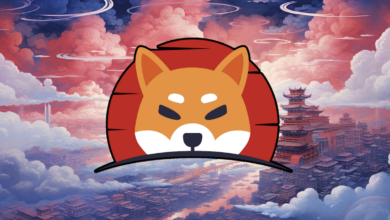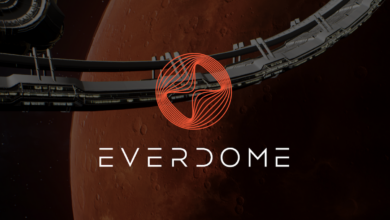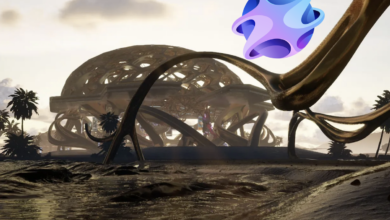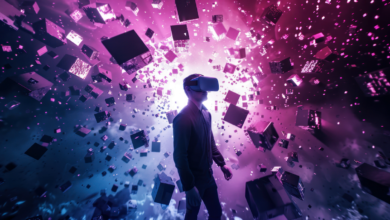How Retail Brands Move to Metaverse and Web3 in the Next Decade
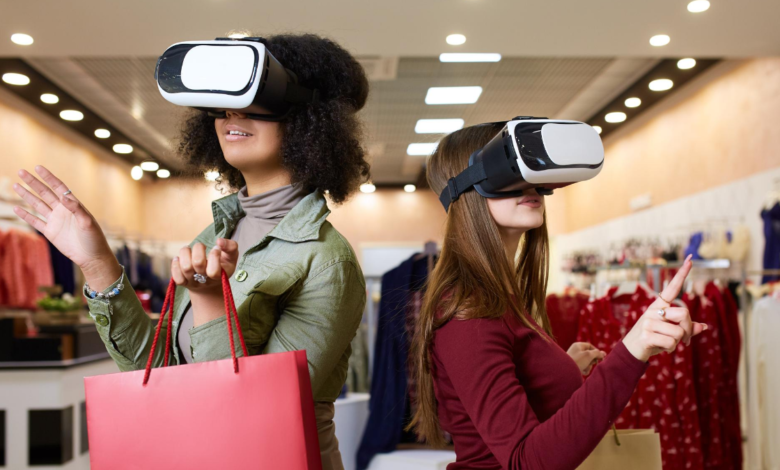
Metaverse and Web3 make us think about the transformation of gaming gigs and virtual meetings. Yet, the metaverse offers eight-trillion-dollar business opportunities for retail in particular. While some hype is likely to subside, the investment flowing into the sector should continue to propel it forward. So let’s see what the current metaverse retail world has to offer.
Understanding Metaverse and Web3 Impact
It’s important to differentiate between the terms metaverse and Web3. They both refer to the same concept, but people use them in different contexts. Web3 applies to the next-generation web that encloses advancements like decentralized ownership and shifts control into the hands of its users and the community, establishing freedom from control and censorship. The metaverse, on the other hand, is a shared digital reality that enables users to connect, build economies, and interact in real-time.
The metaverse could drive physical product sales, reduce the costs needed for physical stores, and enhance the in-store experience through personalized surroundings. This tool would allow consumers to explore and discover your product better. Bring online shopping closer to what consumers can do in stores without leaving home. This will change visitors into customers. Thus, making online retail a far more viable and valuable business.
McKinsey & Company estimates the metaverse will generate up to $5 trillion in impact by 2030. The effect varies by industry, with an estimated $2 trillion to $2.6 trillion impact on e-commerce.
The Metaverse train, powered by Web3, offers:
- Accessing Gen Z and Alpha as customers will drive engagement in the metaverse.
- Stealing engineering talent who can build and maintain 3D assets and digital stores in the metaverse.
- Getting access to complementary buying channels. Brands are looking for more opportunities to sell digital and physical goods through these channels.
- The metaverse serves as a bridge between online and physical revenues. Use it to see the signals for product development.
Anna Nazarenko, CEO of SoftGeneral, a software development company, predicts that more and more retail brands will adopt metaverse technology in the following years. “One of the FMCG market leaders recently approached SoftGeneral to help them augment their tech workforce with skilled specialists to create a custom-made retail metaverse solution. I believe such pioners will drive the whole market,” said Anna.
Some brands have already started using different Web3 tools to reach marketing KPIs. We have chosen four major retail players and analyzed their campaigns to give you some perspective on accessing the metaverse.
Real-World Examples of How Retail Brands Can Use Metaverse and Web3
The metaverse for retail enables them to build customer loyalty by creating a space that customers can return to again and again. Here, brands can offer their potential clients exclusive deals, early access to new products, or special events with the loyal-customer-only pass.
Get acquainted with retail metaverse space examples that pioneer the industry.
Hugo Boss
Hugo Boss has blessed us with metaverse retail space. It is a holistic 360-degree metaverse experience commemorating World Mental Health Day. Web3-wise, they launched the brand’s first NFT collection. They combined the opportunity to articulate their values through an immersive experience as a part of their identity.
All holders of a HUGO x Imaginary Ones NFT will have access to the Imaginary Ones’ staking ecosystem. It has exclusive perks and benefits like a 10% discount in the HUGO online store.
Gap
Gap Threads is the next iteration of Gap’s foray into the metaverse that builds on the gamification of their first NFT launch. Now, Gap’s customers can add items from several drops to their NFT collections and access iconic moments from Gap’s history. The platform has limited edition merchandise from artist partners and exclusive access to engaging experiences.
Gap is also a pioneer among use cases for Web3. With this drop, Gap introduces a new Discord server where customers can engage and cultivate a community with NFTs’ fans.
Gap adds with its second venture into the metaverse. The company plans to continue to test and learn in the space. Future drops will focus on partnering with creators that mirror the brand’s values and push the boundaries of creativity.
H&M
The first brand that comes to mind when we hear metaverse retail stores is H&M. They opened digital doors to its first-ever virtual showroom. The H&M virtual showroom is a space for brand activations like fashion campaigns. They will be brought to life in a new and exciting way by integrating innovation, digitalization, and sustainability.
This is an excellent example of how brands communicate their values among metaverse retail use cases. Being a fast fashion brand, H&M is often accused of harming the environment. They try to reduce their negative influence on the environment by launching sustainability campaigns. In the H&M metaverse, individuals “wear” digital clothing through gaming avatars, augmented reality, or edited photos. For content creators, it is an excellent opportunity to create content with digital clothes without buying the real ones.
On January 3rd, H&M launched an immersive gaming experience, Looptopia, in collaboration with RBLX. The game will allow players to experiment with materials and patterns to create virtual garments to dress their avatars. This will track the young customers who are advocates of modern fashion and are fond of clothes and accessories of H&M towards the game.
Puma
PUMA presented FUTROGRADE. This immersive runway show during New York Fashion Week showcased the brand’s past, present, and future. PUMA has launched a similar metaverse fashion show experience called Black Station. They showcased exclusive NFTs with limited edition redeemable physical sneakers.
FUTROGRADE offered a celebratory exploration of PUMA heritage. The show was at the intersection of fashion, sports, and culture.
PUMA expanded into a 3D spatial playground that will now be the home to the brand’s digital presence. A platform for Web3 activations and NFT drops.
PUMA became one of the first brands to participate in the ENS domain initiative, registering its name, puma.eth, and thus becoming one of the best Web3 use cases for retail brands.
PUMA used the metaverse to articulate its brand values and open itself to a new market.
Moving Into The Metaverse and Web 3.0: Are You Ready?
Companies will create value for consumers in the metaverse in different ways, and they can begin developing a unique strategic plan for their future. These businesses that pioneer the field will get more engagement from new audiences, exert brand awareness and communicate their brands’ values.
We are all just at the beginning of the journey. So, if your company decides to add a metaverse experience to its products, you definitely need to start with the key questions: what, who, and when. What a solution it should be, who you need to build it, and when you want it to go live.
“As for the presence of professionals in the metaverse and Web3 development, I can safely say that they already exist. At Softgeneral, we actively follow trends and are always ready to respond to the various requirements of our customers, so we expanded our team at the beginning of last year with fitted engineers last year,” commented Anna Nazarenko.
So, what does this mean for retailing companies? First, there are already market players that invest in Web 3.0 and the metaverse. Second, if you don’t have engineers to implement your ideas into reality, it’s easy to outsource this job to professionals. Third, your company still has the opportunity to become a pioneer in the market. Don’t postpone, act now.

